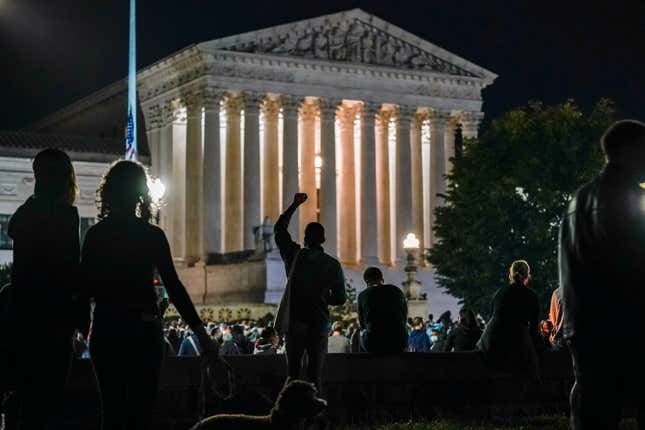Ruth Bader Ginsburg Alone Was Never Going to Save Us
Politics

Justice Ruth Bader Ginsburg died on the eve of the Jewish new year, and I learned the news as I was wondering how on earth to spend the evening. This is the first time in memory that I have spent Rosh Hashanah without family, a minor grievance in the scheme of a year filled with unquestionable sorrow. It had already seemed impossible to celebrate; at once it seemed preposterous.
Almost instantly, Ginsburg’s death was linked to the tragic symbolism of its timing. “Those who die just before the Jewish new year are the ones God has held back until the very last moment [because] they were needed most,” Nina Totenberg wrote on Friday night, citing a Jewish parable. This is, of course, a profound understatement. Ginsburg was sorely needed. That her seat will almost certainly be filled by a likely ghoulish person of Donald Trump’s selection is another tragedy, in a moment in which they seem to have compounded—a pandemic which has taken more than 200,000 lives in the United States, a president who offers no care or concern, and a contentious election that feels like a referendum on the very tenets of basic equality that Ginsburg spent her life attempting to progress.
The crowds that gathered at the Supreme Court to light candles and recite the Kaddish seemed to be grieving less for a woman than for a way of life. “Who is going to take care of us?” one mourner asked the Washington Post.
-

-

-

-

-

-

-

-

-

-

-

-

-

-

-

-

-

-

-

-

-

-

-

-

-

-

-

-

-

-

-

-

-

-

-

-

-

-

-

-








































